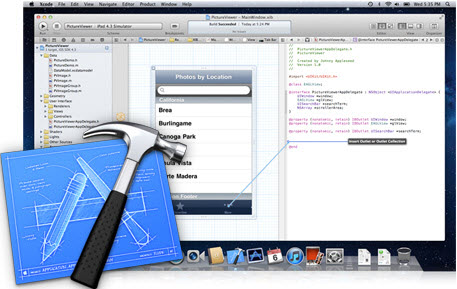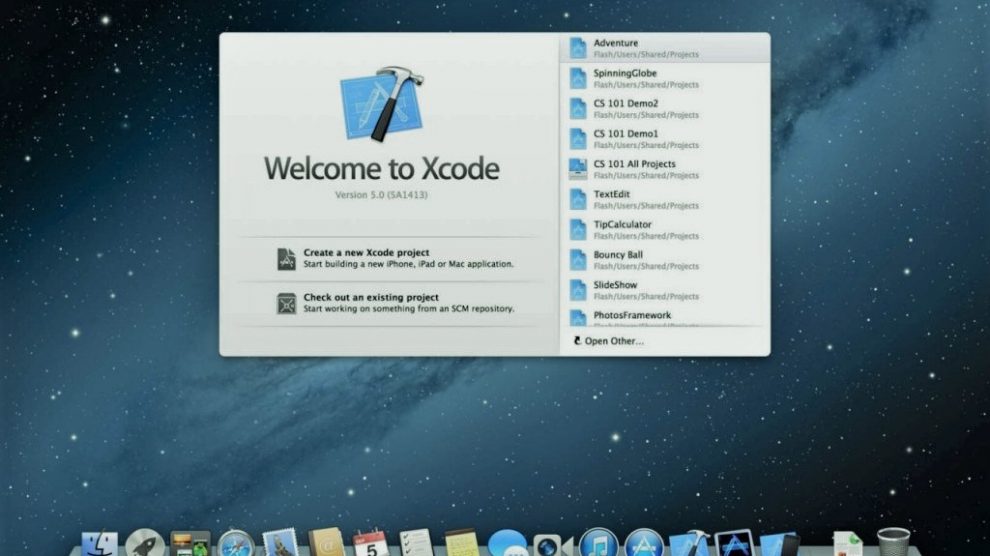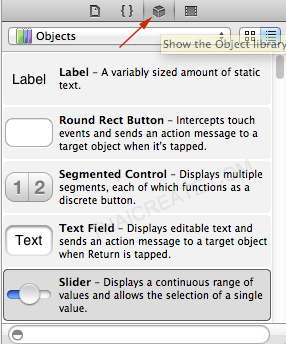

- #Xcode ide and compiler full
- #Xcode ide and compiler software
- #Xcode ide and compiler code
- #Xcode ide and compiler download
#Xcode ide and compiler full
When you do that, additional information (including the full path to that file) will appear in the pane on the right. You can find the full path information by clicking on a text file in the project pane. The best way to make this work is to replace the simple file names "numbers.txt" and "copy.txt" in the open() commands with full paths to the files. When your program runs it will need to locate these text files.Type some numbers into the numbers.txt file and then repeat the process to create an empty text file named "copy.txt".In the dialog that appears, select the Other category and the Empty file option. To add a text file to the project, right-click on the project folder in the project view in the left pane and select the option New Item. Since our first example program needs to work with a couple of text files we will need to create those and add them to our project.

#Xcode ide and compiler code
For our first example you won't need to type anything - just copy and paste the code you see in the source code section below to replace the source code that Xcode generated for you when you set up the project. This is where you will type the source code for your program. The pane in the middle is the source code editor pane.Most of the programs we will write for the first few weeks of this course will consist of a single C++ source code file, usually named 'main.cpp'.

#Xcode ide and compiler download
Download boost library from Boost website.To make it consistent, I use the same installation path for OS X and Ubuntu that is /usr/local/boost_1_60_0. The installation steps (from source code) on OS X and Ubuntu are the similar. In this post we will build Boost from source code. Instead of build from source code, we can use package manager such as MacPorts, Homebrew, Advance Package Tool, etc. There are several ways of Boost installation. To be noted that on this post I run Xcode on OS X, Code::Blocks on Linux (Ubuntu) and Visual Studio on Windows.
#Xcode ide and compiler software
Most of the Boost libraries are licensed under the Boost Software License, designed to allow Boost to be used with both free and proprietary software projectsīefore jumping into steps of configuring Boost on various IDE, let’s begin with Boost installation.Many of Boost developers are on the C++ standard committee.Complement to STL rather than a replacement.The other interesting points of Boost are : It contains over eighty individual libraries. Boost is a set of libraries for the C++ programming language that provide support for tasks and structures such as linear algebra, pseudorandom number generation, multithreading, image processing, regular expressions, and unit testing.


 0 kommentar(er)
0 kommentar(er)
